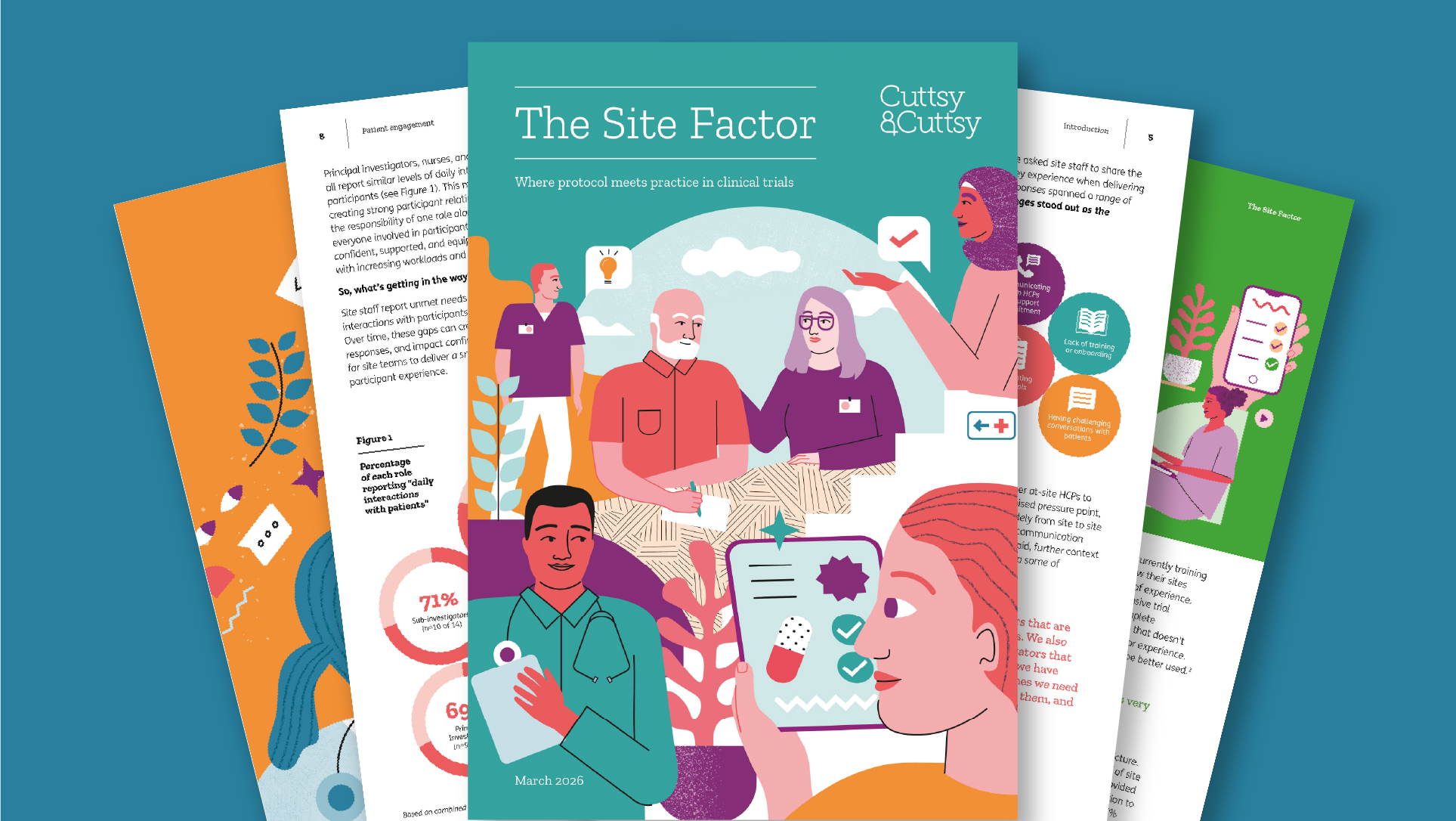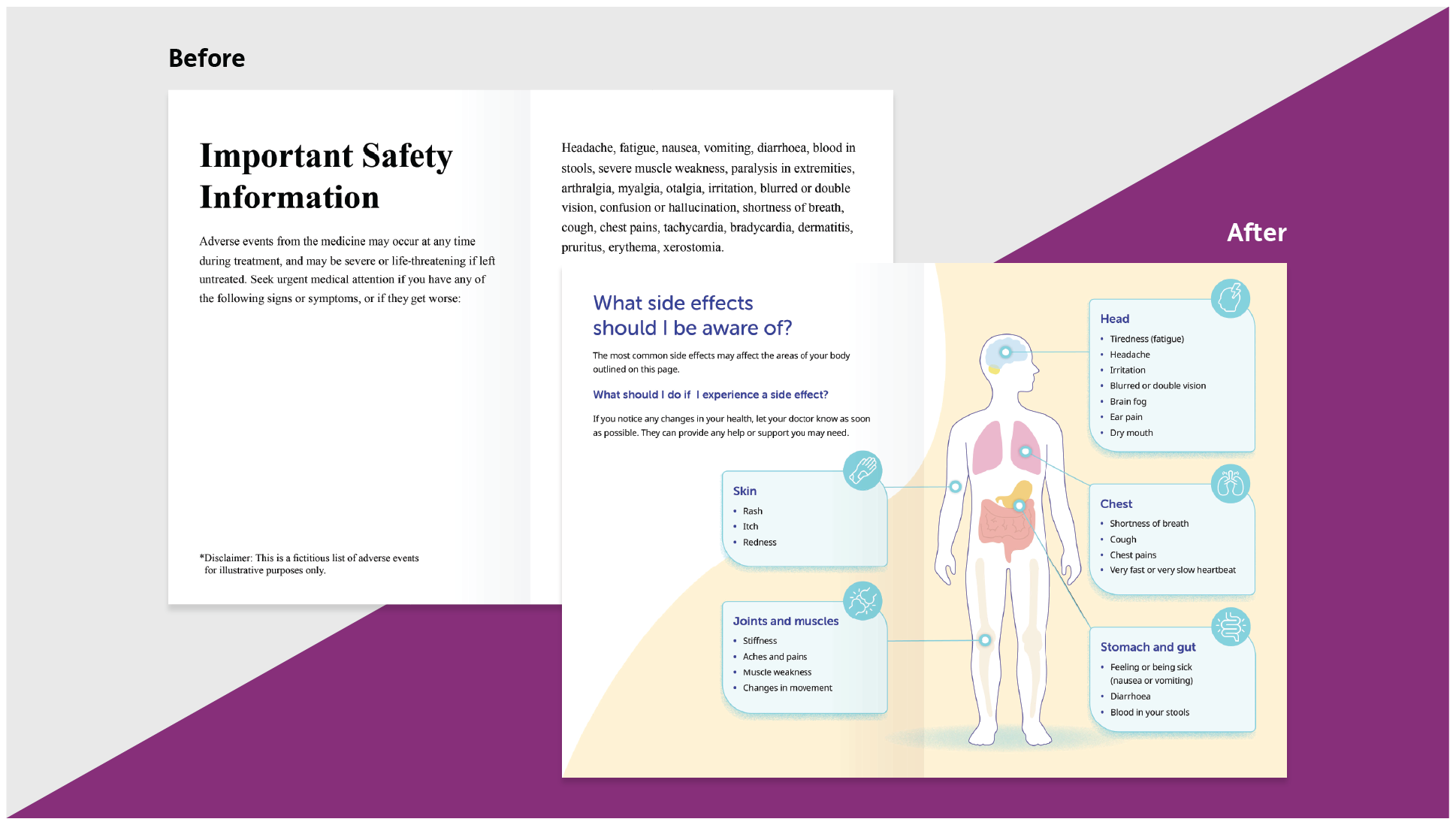AI and away we go: key insights from Reuters Pharma 2025

The pharmaceutical industry is in the midst of a revolution, with artificial intelligence (AI) taking centre stage at the Reuters Pharma 2025 conference in Barcelona. As the sessions unfolded, it became clear that AI's potential spans every corner of the pharmaceutical value chain—from marketing and medical affairs to drug discovery and patient engagement. But it wasn’t all smooth sailing, as concerns around AI's implementation and regulatory challenges surfaced alongside the excitement of innovation.
This blog takes you through key themes and challenges that pharma leaders need to address, and why there’s so much to look forward to in the coming years.
The Key Themes That Stole the Show
- AI’s Transformative Role in Pharma
AI isn’t just a buzzword anymore; it’s ingrained into many aspects of the pharmaceutical process. The discussions revealed key applications gaining traction:
Marketing and Sales: AI can personalise content, provide "next best action" recommendations, and even generate images for campaigns. Tools like autonomous chat agents are rapidly elevating customer engagement.
Medical Affairs: From managing congress data to providing MSL (Medical Science Liaison) support, AI simplifies complex tasks. It can even generate plain-language summaries for better health literacy.
Drug Discovery and Development: AI is accelerating clinical trials, target identification, and even biomarker discovery, helping reduce drug development timelines.
Content Review: AI tools are streamlining the regulatory review process by offering pre-MLR (Medical, Legal, Regulatory) assistance, speeding up approvals and ensuring compliance.
- Patient-Centric Strategies
We were pleased to see that patients were at the heart of the conference themes. Discussions highlighted the need to include their voices at every stage, from R&D to patient support. Initiatives ranged from personalisation in communication to digital health programmes aimed at improving adherence. Metrics like time-to-access and early diagnosis rates are becoming critical performance indicators across the industry.
- Data as a Strategic Asset
Data was everywhere, over 80% of pharma data remains unused, according to the stats shared. The focus was on adopting integrated technology stacks to break down data silos, improve governance, and transform raw information into actionable insights. With tools like real-world evidence (RWE) taking centre stage, companies are moving towards impactful KPIs rather than relying on vanity metrics.
- Evolution of Engagement in a Digital Age
Traditional marketing metrics have evolved into Customer Performance Indicators (CPIs), redefining how success is measured. The emphasis is now on creating seamless, omnichannel customer experiences. AI-powered platforms enable pharma to understand generational differences among healthcare professionals (HCPs), helping tailor their communication for maximum impact.
Challenges on the Road Ahead
While the buzz around AI in pharma is justified, several hurdles need to be cleared before the industry can fully harness its potential.
AI Adoption Still Facing Resistance
70% of generative AI experiments fail, according to conference speakers. These failures stem from challenges in implementation, such as data quality issues, privacy concerns, and governance gaps. Despite 92% of leaders planning to expand AI investments, just 10% of life sciences companies currently allocate resources to AI for medical affairs. This gap highlights the need for a structured roadmap.
Additionally, ensuring model interpretability and minimising "AI hallucinations" are critical when deploying AI in medical and compliance-heavy fields. Missteps could lead to significant reputational and operational risks.
Navigating Regulatory Compliance
Compliance has always been a sticking point in pharma, and the introduction of AI technologies adds an extra layer of complexity. Fair balance across omnichannel communication, adherence to GDPR, and securing regulatory approvals for digital health innovations were key concerns at the event.
Distrust in Data
One alarming stat mentioned was that 75% of executives distrust data-driven decisions, underscoring a lack of confidence in the quality and utility of the insights they receive. Tackling this requires refined governance, better cataloguing, and upskilling staff for AI fluency.
What’s Exciting About AI in Pharma’s Future?
Despite the challenges, the future of AI in pharma brims with possibilities that could redefine how the industry operates.
AI-Driven Patient and HCP Engagement
Imagine autonomous AI assistants that provide virtual medical guidance to patients or simulate patient–physician interactions to assess communication materials. The potential applications of these tools are groundbreaking.
Interconnected Ecosystems
Expect to see AI ecosystems enabling better end-to-end integration—from insights to content creation and beyond. This interconnectedness could drastically accelerate timelines, make operations more cost-effective, and ensure compliance.
One-to-One Marketing Powered by AI
A move towards hyper-personalised, AI-activated marketing at scale looks to be on the horizon. These tailored interactions promise to elevate how pharma engages with stakeholders like HCPs and patients.
Global Reach and Equity
The African continent was hailed as a potential leader in adopting cutting-edge healthcare technologies, thanks to harmonised regulations. On a larger scale, AI could drive innovations that improve access to medicines in underserved regions, pushing towards global health equity.
Taking Action
The discussions at Reuters Pharma 2025 made one thing clear: AI will be indispensable for any company looking to remain competitive in the pharmaceutical industry. However, simply investing in the latest technology isn’t enough. Success lies in strategic implementation, cultural change, and a commitment to addressing regulatory and ethical challenges head-on.
In healthcare, keeping the patient at the centre of everything you do is essential. Every decision, innovation, and action should prioritise their needs, experiences, and outcomes. By focusing our efforts in AI development on patient-centred care, we can build trust, improve treatment effectiveness, and create a system that truly supports the well-being of those we serve. The best AI solutions will always be driven by skilled professionals who guide and refine these technologies to meet real-world needs.
As AI continues to reshape the industry, organisations will need to invest in upskilling their teams and finding the right partners to effectively implement and support these transformative solutions. You can read more about our commitment to never use AI to replace patient voices in our work here.












